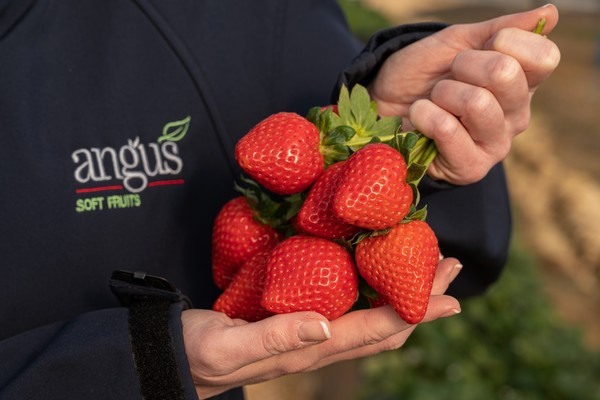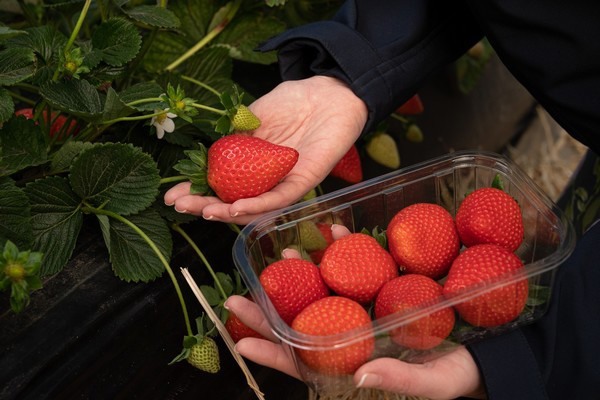Angus Soft Fruits announced the commercial production of two new strawberry varieties, bred to produce delicious fruit throughout the winter season. Intended for production in the Mediterranean region, trials and tests over the past four years have proved they have something special to offer growers, retailers, and consumers, states the company.

AVA™ Alicia
The two varieties AVA™ Alicia (ASF733.01) & AVA™ Catalina (ASF324.01) were bred and selected by the Angus Soft Fruits Breeding Programme team.
Breeding Programme Director Lucy Wilkins said: “Tests over the past four seasons at the Angus Soft Fruit trial sites in Spain have confirmed that we have exciting new varieties for the future. The significant point of difference for growers in the region with the varieties is the high tolerance to disease, along with an ideal season and yield portfolio. Consumer benchmarking has shown excellent responses to the exceptional appearance, flavor, and texture of these new, very special varieties alongside extended shelf life.”

AVA™ Catalina
Managing Director of Angus Soft Fruits, John Gray, said, “The feedback from our customers has been extremely positive, and we are looking forward to scaling up production over the next couple of years.”
The science behind the breeding of these varieties started several years ago when Angus Soft Fruits reviewed their Mediterranean production of strawberries. Varieties at that time were deemed to lack some of the characteristics enjoyed during the summer season of production. Efforts were made to combine genetics that would express the appearance and flavor of the traditional ‘summer season’ berries. Also required in the makeup of the new varieties was the ability for them to produce fruit in the short days of winter, albeit during the warm climate enjoyed during the Mediterranean winter.
For more information:
Jill Witheyman
Angus Soft Fruits
Mob.: +44 (0)7894 096123
Email: [email protected]
www.angussoftfruits.co.uk
